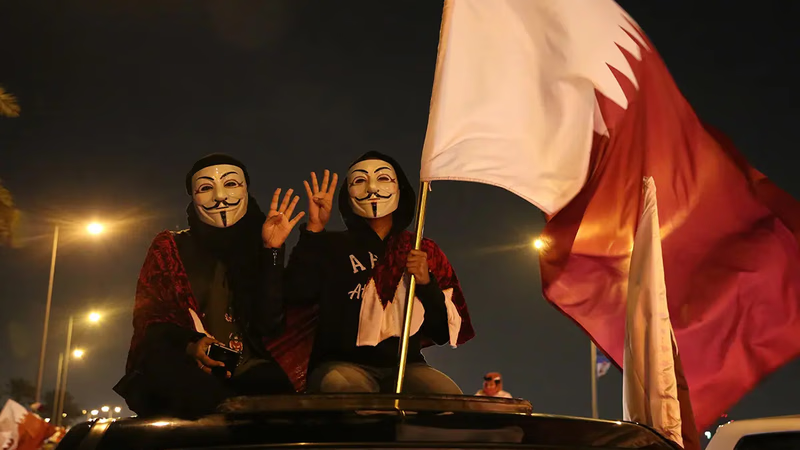
Explore Qatar"s diverse culture and thriving trade opportunities. "
Many people in Qatar are prejudiced against their beliefs and insist on supporting their prejudices, believing that life in Qatar should be intertwined with Islam. Dressing in Qatar should be formal, which is much more common in religious places. The people of Qatar are not interested in abusive behavior and they avoid being ridiculed by others, so insults and disrespect are treated in this country. Note that any disrespect to the flag of Qatar is prosecuted. Qatar is one of the countries that has achieved good results in recent years in terms of legislation and crime reduction. Never make fun of the language of Qatar. Keep in mind that the strictness of the Qatari hijab has decreased in recent years, but it still exists.
Qatar does not have a single culture due to its high immigration rate. The presence of a large number of citizens of different countries has made this country a combination of different cultures. The religion of the people of Qatar is Islam, but most of them are Sunnis, and this religion has had a great impact on the culture of the people of this country. In general, when you enter Qatar, you should consider that you have entered a Muslim country and you are not allowed to do anything, you will not be allowed to do anything that contradicts the norms and customs of the people of this country. Women in Qatar wear clothes, but the hijab of Qatar is free.
The book reading system and the state of education in Qatar are also very strong and advanced economic sectors; the coefficient of adjustment of transportation consumers in Qatar has also increased by more than 15%, and there are good economic approaches in this regard. The progress of Qatar in recent years is very significant.
If you want to enter Qatar during Ramadan, you must avoid eating and drinking in public at certain times in Qatar. It is worth mentioning that the people of this country are very hospitable and kind. The human nature and social situation of Qatar are somewhat similar to the social culture of the people of southern Iran. Qatar has a calm society with good and appropriate emotional relations. Qatar has made great progress in the field of construction so that the housing system in Qatar in recent years is an important part of the economic turnover and has a clear economic approach. The country has also performed very well in the field of transportation index so that the transportation systems in Qatar have been used in a more advanced way in 2019.
Do not forget that the government's control over the inflation rate is another Qatar is valuable development. The price of the Qatari Rial has also increased compared to before. The government has strangely controlled food inflation, and it is clear that the economic approaches are seen in this area. The recent ones have progressed accurately. Welfare services in Qatar are another part of the country's development, which fortunately has been assessed with the high satisfaction of Qatari citizens. Do not forget that Qatar is one of the best countries that has been able to control its water needs and use the latest technology in this regard.
-

Qatar"s economy is significantly influenced by its sovereign wealth fund, the Qatar Investment Authority (QIA), which invests in diverse sectors globally. The country has established itself as a financial hub, particularly through the Qatar Financial Centre (QFC), attracting international businesses with favorable tax incentives. Despite a recent GDP growth rate of -2. 60%, Qatar"s per capita GDP stands at $112,531. 50, showcasing its economic strength. The nation is a leading player in the Islamic finance sector and heavily relies on its hydrocarbon resources, especially liquefied natural gas (LNG), contributing to global energy security. Economic diversification efforts are underway, focusing on finance, real estate, tourism, and technology to reduce dependence on hydrocarbons. Initiatives like Qatar National Vision 2030 aim to foster innovation and attract global investments.
Additionally, Qatar"s strategic location enhances its trade relationships worldwide, facilitating both exports and imports. The hosting of major international events like the 2022 FIFA World Cup further boosts tourism and commercial activities, solidifying Qatar"s position in the global market.
-
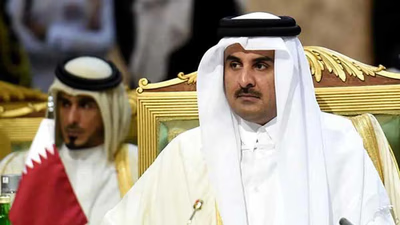
Qatar operates as an absolute monarchy, with power centralized in the Al Thani family. The Emir serves as the head of state and government, holding significant executive authority. The position is hereditary, ensuring continuity within the ruling family. The Advisory Council, or Shura Council, acts as a consultative body, providing recommendations to the Emir but lacking binding decision-making power. The Council of Ministers, also appointed by the Emir, manages daily government operations and policy implementation. Qatar"s political structure emphasizes the Emir"s legislative and executive powers, supported by these councils. The country maintains a legal framework based on Islamic law while allowing individual rights related to property and economic activities that align with public interest. Doha is the capital city and a hub for economic activity, particularly in oil and gas sectors.
Other cities like Al Rayyan and Al Khor contribute to Qatar"s diverse economy through their proximity to industrial areas and resources. Qatar"s governance includes various ministries overseeing essential sectors such as finance, foreign affairs, energy, education, and health. Municipal councils manage local governance issues across different municipalities, with members being both elected and appointed.
-
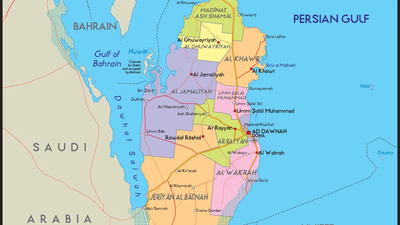
Qatar"s strategic location on the northeastern Arabian Peninsula significantly influences its economy and culture. The country, bordered by Saudi Arabia and the Persian Gulf, has a high-income economy primarily driven by its vast reserves of natural gas and oil. As one of the leading exporters of liquefied natural gas (LNG), Qatar"s oil and gas sector accounts for a substantial portion of government revenue, contributing to rapid economic growth estimated at 20%. The official language is Arabic, essential for business communication, while English is also widely spoken in educational and professional settings. Qatar"s climate is characterized as hot and dry desert, with optimal visiting times in April, May, and autumn. The discovery of oil in 1939 transformed Qatar into one of the richest countries globally, prompting diversification efforts that reduced dependence on oil revenues from 93% to 83%. Investments in energy infrastructure have further solidified its economic position. Additionally, Qatar"s sports infrastructure attracts international events, enhancing tourism and business networking opportunities.
Overall, Qatar"s unique geographical advantages combined with its rich natural resources create a dynamic trade environment. "
-
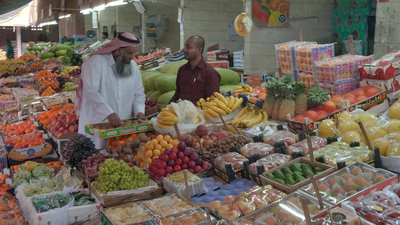
Qatar"s economy is thriving, primarily due to its abundant natural gas and oil reserves, leading to a high GDP per capita. The government is focused on diversifying the economy through the Qatar National Vision 2030, which opens avenues for exporters in finance, real estate, tourism, and technology. Strong trade relations and various bilateral agreements enhance market access for exporters. Qatar"s strategic location next to the Persian Gulf facilitates goods transit, while modern infrastructure supports trade activities. Despite political challenges with neighboring countries, Qatar maintains robust ties with Iran, which aids in import-export dynamics. The country heavily relies on imports for industrial goods due to a lack of local production capabilities. Key sectors for export opportunities include construction materials and services, especially with upcoming events like the FIFA World Cup 2022 driving demand. Free trade zones such as QFZA and QFC provide favorable conditions for businesses looking to enter the Qatari market.
-

Qatar has made significant strides in various sectors, including legislation, crime reduction, and economic development. The country maintains a unique cultural blend due to its high immigration rate, with Islam playing a central role in societal norms. Dress codes are formal, especially in religious settings, and respect for local customs is paramount. The Qatari hijab has seen some relaxation over the years, yet traditional values remain strong. Education and transportation systems are advanced, contributing to the nation"s economic growth. Qatar"s government effectively manages inflation and food prices while ensuring high satisfaction among its citizens regarding welfare services. The hospitality of the Qatari people is notable, reflecting a calm society with strong emotional ties. As Qatar continues to develop its infrastructure and services, it remains essential for visitors to respect local customs and practices.
-
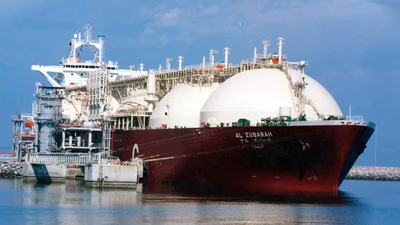
Qatar"s economy is one of the wealthiest globally, primarily due to its extensive natural gas reserves. The country is a leading producer and exporter of liquefied natural gas (LNG), which significantly contributes to its high GDP per capita and low unemployment rates. The oil and gas sector remains the backbone of Qatar"s economy, generating substantial government revenue. However, Qatar is actively pursuing economic diversification through initiatives like the Qatar National Vision 2030, aiming to reduce reliance on hydrocarbons by investing in finance, real estate, tourism, transportation, and technology. This diversification strategy has already shown positive results, with economic growth estimated at 20%. The upcoming 2022 World Cup is anticipated to further boost the economy. Despite challenges in agriculture due to saline soils and reliance on migrant labor for farming, sectors like fishing also contribute to the economy. Since discovering oil in 1939 and joining OPEC in 1961, Qatar has seen a significant increase in average income levels.
The government has established sovereign wealth funds like the Qatar Investment Authority (QIA) to manage surplus revenues from hydrocarbon sales effectively. These funds have made global investments across various sectors, supporting infrastructure development and social welfare programs.






